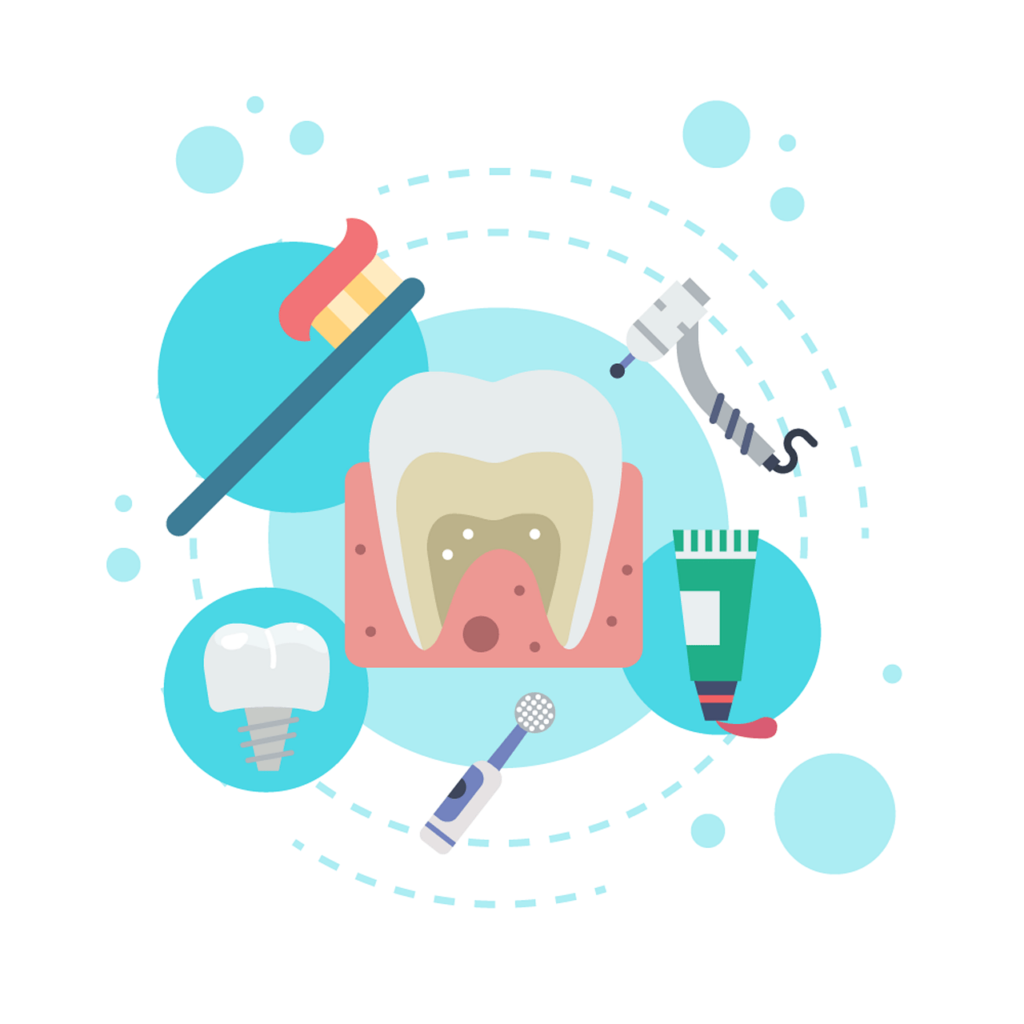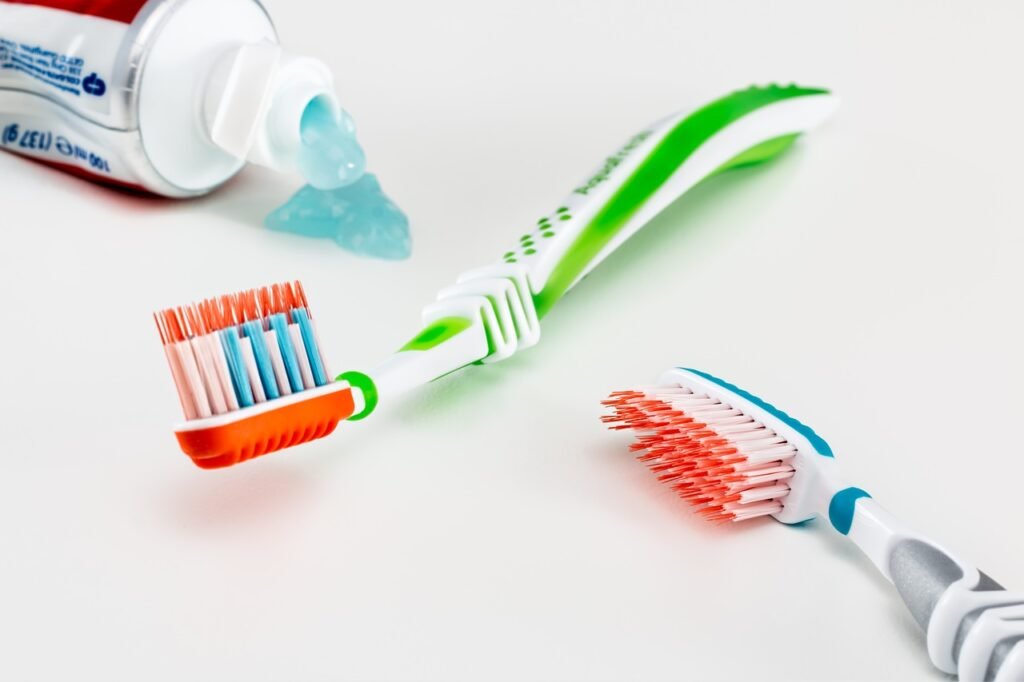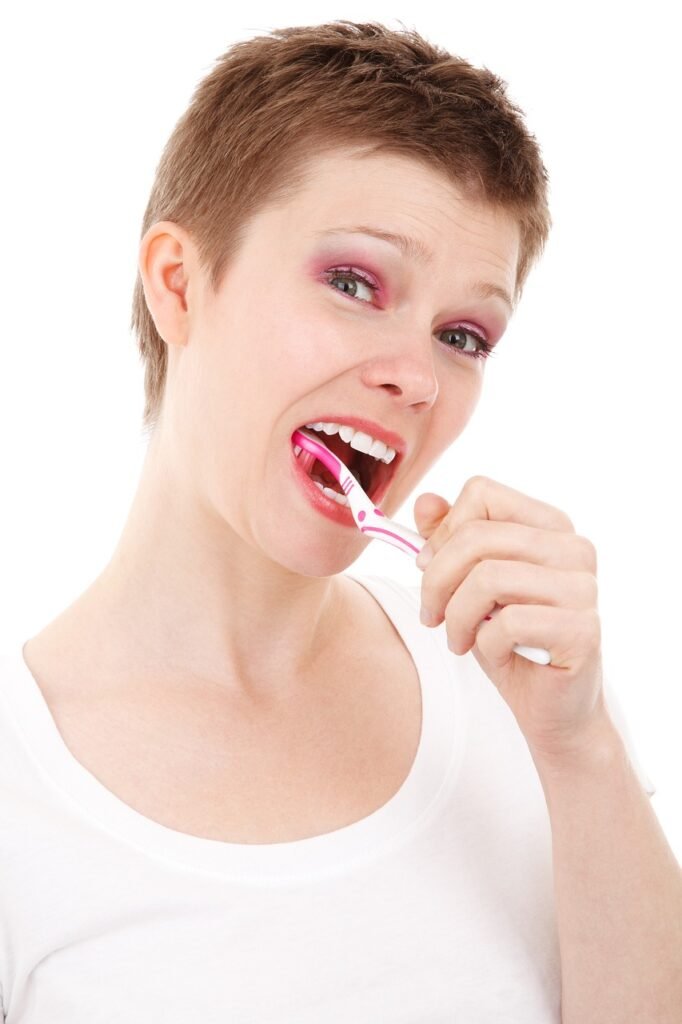Taking care of your gums is just as important as taking care of your teeth when it comes to maintaining good oral hygiene. Neglecting your gums can lead to gum disease and other dental issues that can affect your overall health. In this article, you will find 10 simple tips to help you maintain effective gum care habits, ensuring that your gums stay healthy and your smile remains bright. Discover these easy-to-implement strategies that will not only improve your oral health but also leave you feeling confident and happy with your beautiful, healthy gums.

This image is property of pixabay.com.
Brushing Techniques
When it comes to maintaining good oral hygiene, brushing your teeth is an essential daily habit. To ensure you’re taking proper care of your gums, it’s important to use the right brushing techniques. First and foremost, make sure you’re using a soft-bristled toothbrush. Hard bristles can be abrasive and may cause damage to your gums. With a soft-bristled brush, you’ll be able to clean your teeth thoroughly without causing any harm.
Another important technique is to brush gently in circular motions. Avoid using a back-and-forth motion, as this can irritate your gums. By brushing in small circular motions, you can effectively remove plaque and food particles without putting too much pressure on your gums. Remember, the goal is to clean your teeth and gums, not to scrub them vigorously.
Furthermore, make sure you are brushing for at least two minutes. This may seem like a long time, but it gives you enough opportunity to thoroughly clean all tooth surfaces, including the gum line. Set a timer or use a toothbrush with a built-in timer to ensure you’re brushing for the recommended duration. Taking the time to brush properly can make a big difference in the health of your gums.
Finally, don’t forget to clean all tooth surfaces, including the gum line. Plaque and bacteria can accumulate along the gum line, leading to gum inflammation and potential gum disease. To ensure you’re effectively cleaning this area, angle your toothbrush at a 45-degree angle and use gentle circular motions to brush the gum line. Taking these extra steps will help keep your gums healthy and free from disease.
Flossing Regularly
Brushing alone is not enough to maintain optimal gum health. Flossing is equally important to remove plaque and food particles from between your teeth and along the gum line. Make it a habit to floss at least once a day to ensure your gums stay healthy.
Using proper flossing technique is crucial. Start by wrapping about 18 inches of floss around your middle fingers, leaving a few inches in between for flossing. Gently glide the floss between your teeth, moving it back and forth in a sawing motion. Curve the floss into a C shape around each tooth and carefully slide it below the gum line. Be careful not to snap the floss onto your gums, as this can cause irritation and bleeding.
While flossing, be gentle on your gums to avoid any damage. If you have sensitive gums, you can try using waxed floss or floss tape, which tends to be softer and less likely to cause irritation. There are also alternatives to traditional floss such as water flossers or interdental brushes that can be effective in removing debris from hard-to-reach areas. Experiment with different methods and find one that works best for you and your gums.

This image is property of pixabay.com.
Using Mouthwash
Adding mouthwash to your oral hygiene routine can provide an extra level of protection for your gums. When choosing a mouthwash, opt for an alcohol-free formula. Alcohol can cause dryness and irritation, which can be harmful to your gums. Look for a mouthwash that contains fluoride to help strengthen your teeth and fight against tooth decay.
Rinse with mouthwash after brushing and flossing to further remove any remaining bacteria or debris. Swish the mouthwash around your mouth for about 30 seconds, making sure to target areas with gum inflammation. This can help reduce the risk of gum disease and promote healthier gums.
It’s always a good idea to consult your dentist for specific mouthwash recommendations. They can provide guidance based on your unique oral health needs. If you have sensitive gums or other dental concerns, your dentist may prescribe a specialized mouthwash or give you further instructions on how to use it effectively.
Maintaining a Healthy Diet
Maintaining a healthy diet is not only important for your overall well-being but also for the health of your gums. Limiting your consumption of sugary and acidic foods is crucial to prevent tooth decay and gum disease. These types of foods can contribute to plaque buildup and increase the risk of gum inflammation.
Instead, focus on eating plenty of fruits and vegetables. These foods are not only nutritious but also help stimulate saliva production, which in turn helps to neutralize acids in the mouth and protect your gums. In addition, including foods that are rich in calcium and vitamin D can promote strong teeth and gums. Dairy products, leafy greens, and fish are all good sources of these essential nutrients.
Another important aspect of maintaining a healthy diet is staying hydrated. Drinking an adequate amount of water throughout the day promotes saliva production, which helps to wash away food particles and bacteria. Adequate hydration also reduces the risk of dry mouth, which can contribute to gum inflammation and other oral health issues.

This image is property of pixabay.com.
Avoiding Tobacco Products
If you’re a smoker or use other tobacco products, now is the time to quit. Tobacco use significantly increases the risk of gum disease. The chemicals found in tobacco products can damage your gums, reducing their ability to fight off infections and heal properly. Smoking also affects blood flow to the gums, making it even more difficult for them to stay healthy.
Seek professional help to quit if needed. Your dentist or healthcare provider can provide resources and support to assist you on your quitting journey. Additionally, joining support groups or counseling programs can provide you with the encouragement and tools you need to successfully quit using tobacco products. Quitting smoking or using other tobacco products will not only benefit your gums but also improve your overall health.
Managing Stress
Stress is often overlooked as a contributor to gum inflammation, but it can play a significant role in your oral health. When you’re stressed, your body releases hormones that can weaken your immune system, making it harder for your body to fight off infections, including gum disease. Therefore, it’s important to manage stress effectively for the sake of your gums and your overall well-being.
Practice stress-relieving techniques such as deep breathing exercises, meditation, or yoga. Engaging in regular exercise can also help reduce stress levels and improve your overall health. Find activities that you enjoy and make them a regular part of your routine. In addition, consider mindfulness or meditation practices to help calm your mind and reduce stress levels. Taking care of your mental health can positively impact your oral health as well.
Regular Dental Check-ups
Regular dental check-ups are vital for maintaining healthy gums. Schedule visits to your dentist at least twice a year, or as recommended by your dental professional. During these appointments, your dentist will not only examine your teeth but also evaluate the health of your gums.
Professional cleanings are important for removing plaque and tartar that cannot be removed through regular brushing and flossing alone. Your dental hygienist will use specialized tools to remove these deposits and ensure your gums are thoroughly cleaned. They will also provide guidance and advice on how to improve your oral hygiene routine based on your specific needs.
Early detection of gum problems is essential for prompt treatment and prevention of further complications. Regular check-ups allow your dentist to identify any signs of gum disease or other oral health issues early on. They can provide you with the necessary treatment and guidance to keep your gums healthy and prevent more serious problems from arising.
During your dental visits, make sure to discuss any concerns or changes in your oral health. Your dentist can address any issues you may be experiencing and guide you on how to improve your gum care habits.
Addressing Teeth Grinding
Teeth grinding or clenching, also known as bruxism, can have a negative impact on your gums. The excessive force exerted during grinding can lead to gum recession and damage to the supporting structures of your teeth. If you suspect you may be grinding your teeth, it’s important to address it to protect your gums.
Consult your dentist for a mouthguard, also known as a nightguard. This custom-fitted appliance is worn while sleeping and helps to prevent the grinding or clenching of teeth. The mouthguard acts as a cushion, reducing the impact on your teeth and gums. It helps to alleviate the pressure and protect your gums from potential damage caused by bruxism.
Stress or misaligned teeth can contribute to teeth grinding. Identifying and managing the underlying causes can help reduce or eliminate grinding. Additionally, avoid chewing on hard objects such as ice, pens, or fingernails, as this can worsen the effects of bruxism.
Gum Massage
Gum massage is a simple yet effective technique to promote gum health. Gently massage your gums with a clean finger in circular motions. This technique increases blood circulation to the gums, helping to keep them healthy and strong.
To further enhance the benefits of gum massage, you can use a natural antimicrobial agent like coconut oil. Coconut oil has antibacterial properties that can help to reduce inflammation and protect against gum disease. Simply apply a small amount of coconut oil to your finger before massaging your gums.
Make it a habit to massage your gums for a few minutes daily. This can be done as part of your oral hygiene routine or anytime you feel your gums could use some extra care. Consistency is key in maintaining healthy gums, so incorporate gum massage into your daily routine for optimal results.
Adopting a Gum-friendly Lifestyle
In addition to the specific habits mentioned above, adopting an overall gum-friendly lifestyle can greatly contribute to the health of your gums. Avoid excessive alcohol consumption, as it can have detrimental effects on your oral health, including gum disease. Alcohol can dry out your mouth, reducing saliva production and leaving your gums vulnerable to inflammation and infection.
Staying hydrated is crucial for maintaining oral health. Drinking an adequate amount of water throughout the day helps to prevent dry mouth, which can contribute to gum inflammation and other oral health issues. Keep a water bottle with you at all times and sip on water regularly to keep your mouth hydrated.
Practicing good oral hygiene habits is essential for gum health. Brush your teeth at least twice a day, floss daily, and rinse with mouthwash to keep your entire mouth clean and free from bacteria. Additionally, consider using a tongue scraper to remove bacteria and debris from your tongue, as it can contribute to gum disease if left unaddressed.
By following these tips and maintaining a consistent gum care routine, you can ensure the health and longevity of your gums. Remember, your gums play a crucial role in overall oral health, so don’t neglect them. Take the necessary steps to keep your gums healthy and enjoy a radiant smile for years to come.
